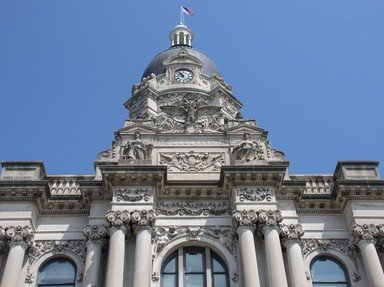Quiz Answer Key and Fun Facts
1. Prohibition of alcohol was closely related to which nineteenth century reform movement?
2. Prohibition of the manufacture, sale, and distribution of alcoholic beverages was launched by which amendment to the Constitution?
3. The Prohibition Amendment forbade several things concerning alcohol, but what did it NOT do?
4. Although Prohibition had support across the nation in every social and economic class, it was largely supported by which of the following groups?
5. Anti-Prohibition people found several ways to protest the anti-alcohol crusade. One was to make alcohol in their homes and calling it what?
6. Illegal saloons operated throughout the Prohibition era, mainly in the largest cities. To enter one of these, a would-be patron had to provide a password to the doorman. What was the name used for such an establishment?
7. Organized crime loved Prohibition, as criminals across the nation began providing alcohol to thirsty Americans. Who was the most famous (and infamous) bootlegger of the 1920's?
8. Prohibition support came from various religious groups who thought drinking alcohol was sinful and led to criminal activities. Which of these were most likely to oppose alcohol?
9. Politics became involved with the Prohibition crusade. Beginning with Warren G. Harding in 1921 and continuing with Calvin Coolidge and Herbert Hoover for the rest of the decade, these Presidents officially supported Prohibition. What political party were they from?
10. The Prohibition experiment came to an end in 1933. Which President was in office at this time?
Source: Author
obiwan04
This quiz was reviewed by FunTrivia editor
bloomsby before going online.
Any errors found in FunTrivia content are routinely corrected through our feedback system.
